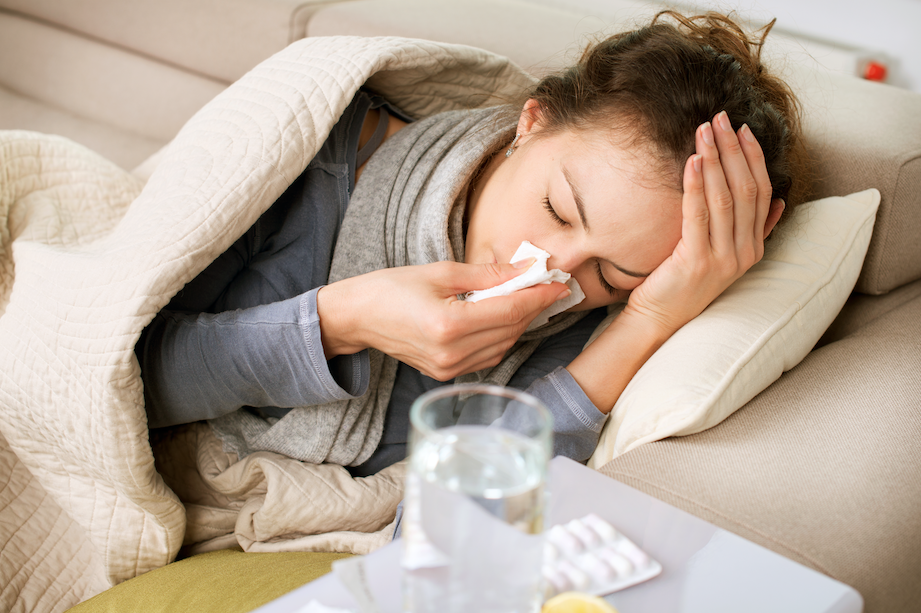Tips For Coping With The Flu
August 26 2017Flu contributes to an estimated 3,000 deaths in Australia each year.

The flu is a highly contagious viral infection that can cause severe illness and life-threatening complications, including pneumonia. The flu is spread by contact with fluids from coughs and sneezes.
The most common symptoms of the flu are sudden high fever, a dry cough, body aches, and feeling very tired and weak. In some cases of the flu, complications can lead to pneumonia, bronchitis and even death.
So what are some useful tips that can help you cope while recovering from the flu?
- Rest – you will probably feel very weak and tired until your temperature returns to normal (about three days), and resting will provide comfort and allow your body to use its energy to fight the infection
- Stay at home – stay away from work or school and avoid contact with others as much as possible while the infection is contagious. The period during which adults are contagious is usually around 3–5 days from when the first symptoms appear, and up to 7 days in younger children.
- Drink plenty of fluids – extra fluids are needed to replace those lost because of the fever (through sweating). If your urine is dark, you need to drink more. Try to drink a glass of fluids, such as water, every hour while you are awake.
- Take simple pain-relieving medication such as paracetamol or ibuprofen, as directed on the packet, to ease muscle pain and bring down your fever (unless your doctor says otherwise).
- Do not give any medications that contain aspirin to children under 18 years of age with flu. The combination of the flu and aspirin in children has been known to cause Reye’s syndrome– a very serious condition affecting the nervous system and liver.
- Antibiotics are not effective against the flu because the flu is a virus, and antibiotics fight bacteria. However, your doctor may prescribe them if you develop a bacterial infection on top of your flu.
- Gargle with a glass of warm water to ease a sore throat. Sucking on sugar-free lollies or lozenges also helps.
- A hot water bottle or a heating pad may help relieve muscle pain. A warm bath may also be soothing.
- Use saline nose drops or spray to help soothe or clear a stuffy nose. These decongestants help shrink swollen blood vessels in the nose. Talk to you doctor or pharmacist about which medication will be the best one for you.
- Do not smoke – this will irritate your damaged airways.
- Try warm, moist air inhalation. Boil a kettle and put the water in a bowl on a table. Put your head over the bowl with a towel over your head and inhale the warm air for up to 20 minutes. Don’t put anything in the water.
- Ask for help if you live alone, are a single parent, or are responsible for the care of someone who is frail or disabled. You may need to call someone to help you until you are feeling better.
- Remember, if you buy medicine at the pharmacy to treat your symptoms (over-the-counter medications), check with the pharmacist to see if it is the best one for you. Mention if you have a chronic illness or are taking any other medication.
If you are still concerned or would want to get an Influenza vaccine, call to schedule an appointment with one of our medical professionals at 03 5229 5192 (Myers Street Family Medical Practice), 03 5241 6129 (The Cottage Medical Centre), 03 5264 8838 (Torquay Medical Health & Wellness Clinic).
For Corporate Care Program, visit Workplace Health & Safety Victoria.
